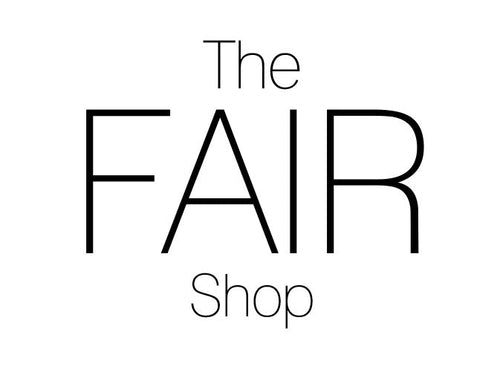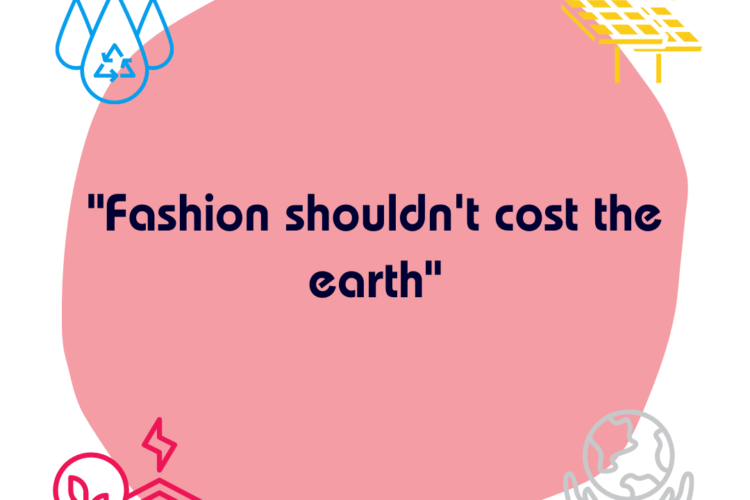Fashion is contributing to the death of biodiversity and the ocean. It is imperative and urgent that the industry changes its approach.
We are amid a celebration of the marine life and ocean ecosystem with the staging of National Marine Week 2021 running until August 8th. In the UK you are never more than 70 miles away from the ocean and the nature of our ecosystem means a direct link exists between the health of the ocean and the climate and societies that live above the water.
The UK marine ecosystem contributes half of all the wildlife at around 30,000 species that contribute to flood management, water purification, and are a massive provision of oxygen for us. A negative impact on the ocean works directly to worsen the quality of life above water. The 4th biggest pollutant on the planet is the fashion industry. A unifying aspect of the brands we work with is their agreement that the planet’s health, and thus the health of those who inhabit the planet, is a non-negotiable primary feature of their design language.

The fashion industry must reconcile with its approach in all aspects of its industries as the current cycle cannot be maintained at its current rate. The pace at which the fashion industry moves, the scale of production, and often disregard for the environmental and social impact of the fashion industry must be overhauled and a new archetype of practice implemented.
A new fashion system works to reconcile with the damage that has been caused by the culture around fast fashion and the industry's practices. A 2017 Ellen MacArthur Foundation report found that 63% of the materials used for clothing were virgin plastics compared to 3% that are recycled materials. Fashion production at its current rate threatens the health of the sea life and the planet as an entity. Only 6% of the plastic that enters the ocean breaks down into small microplastics and falls to the ocean bed. The Ellen MacArthur report found that on average fast fashion purchases are disposed of after a solitary year. When 65 million tons of plastic is produced for textile fibres, representing close to 20% of total plastic production, and when much of the clothing produced with that plastic is not held onto for long, it creates a cycle of destruction that only works to further plunge our planet’s ecosystem into collapse.

The FAIR Shop works with brands that want to break this mould thus protecting the environment and ensuring that a fashion industry that works harmoniously with our planet is seen as the criterion. The importance of locality in fashion is often lost in the chase for profit margin. The FAIR Shop works with brands that are local to Brighton and are using their platform to force through change, leading by example, within the fashion industry. Ruby Moon is a local brand that works directly to clean our oceans. They work in collaboration with an NGO, Healthyseas.org, to collect ghost fishing nets that are leaching microfibres and killing over 100,000 animals per annum. Their garments are made with ECONYL regenerated nylon from waste such as these fishing nets. The result is two-fold. A quantifiable impact on protecting the ocean’s biodiversity. Also, the materials used in production from their conservation are certified to be twice as strong as regular swim and activewear. Ruby Moon creates swimwear with a design language that cannot be separated from a conscious effort to help preserve and protect biodiversity and the planet’s future health.

Pala Eyewear is another brand that has its story tied to Brighton. It is estimated that only 9% of the nine billion tonnes of plastic produced globally has been recycled. This is an unsustainable level of production that is greatly contributing to the collapse of our planet. Pala Eyewear’s vision is to recycle and reuse. They have used 31,000 water sachets picked up from the ground to use in their case stripes and use recycled plastic materials to create their stunning cases that hold their glasses. Pala is committed to the idea of the circular economy and will recycle their old glasses from customers by working with TerraCycle to turn their glasses into a myriad of useful raw materials such as nuts, bolts % traffic cones. Their commitment to recycling is a benchmark that must be followed as the planet is not merely an entity that houses a landfill, it is an entity that deserves respect, and fashion is an industry that is severely lacking in respect for that which has provided its foundation to even exist. 

The FAIR Shop dedicates its retail space to brands that show a considered and respectful approach to that which is living. Other local brands such as Zola Amour, Unoa, and various brands that are produced under The Zold Fold implement these principles in their design language. Mud Jeans and People Tree are brands that’s origins are away from Brighton, however, their design language is in line with our principles. People and planet are at our core.
Our ecosystem deserves respect. Brands that are considered and respectful in the design language are the future of style and the industry as a whole. The planet cannot continue to brunt the burden of the current fashion systems’ disrespectful tendencies and thus the fashion industry must be revolutionised.
Written by Cormac Gannon

